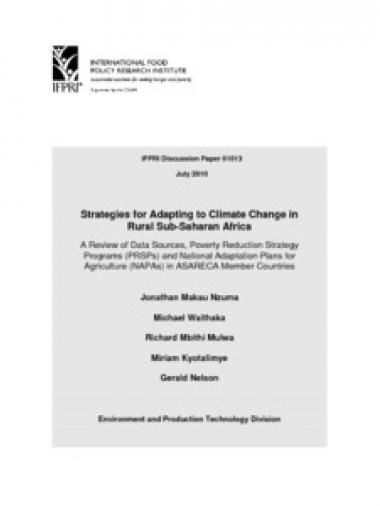Strategies for adapting to climate change in rural Sub-Saharan Africa

Given limited resources, adaptation strategies must target those populations most vulnerable to global change and equip those unable to adapt—generally the poorest—with the tools and incentives that will enable them to do so. ASARECA has recently carried out a study to enhance the understanding of climate change in the 10 ASARECA member countries. This report profiles the available climate change–related datasets and their accessibility and procurement details in the 10 ASARECA member countries. The report additionally assesses the incorporation of climate change adaptation strategies in national development plans and discusses each country’s position in the current UNFCCC negotiations. The study was conducted using a combination of extensive literature reviews and field visits to all 10 ASARECA member countries: Burundi, Democratic Republic of Congo, Eritrea, Ethiopia, Kenya, Madagascar, Rwanda, Sudan, Tanzania, and Uganda. The report is organized in four sections. The first provides a description of the available climate change–related databases, along with details about their sources and accessibility in each of the 10 ASARECA member countries. Section 3 is a review of the status of the incorporation of climate change adaptation strategies in national development plans, while section 4 discusses the countries’ positions in the current UNFCCC negotiations. Finally, section 5 offers concluding remarks and suggestions for a way forward. In addition to the study report, separate files of existing climate change–related datasets are provided in EXCEL format.
Citation
Nzuma JM, Waithaka M, Mbithi Mulwa R, Kyotalimye M, Nelson GC. 2010. Strategies for adapting to climate change in rural Sub-Saharan Africa. IFPRI Discussion Paper 1013. Washington DC, USA: International Food Policy Research Institute (IFPRI).